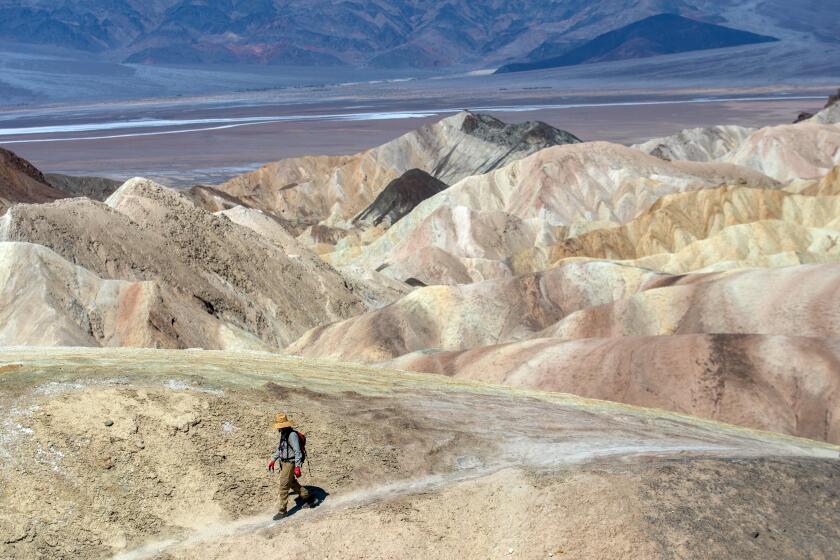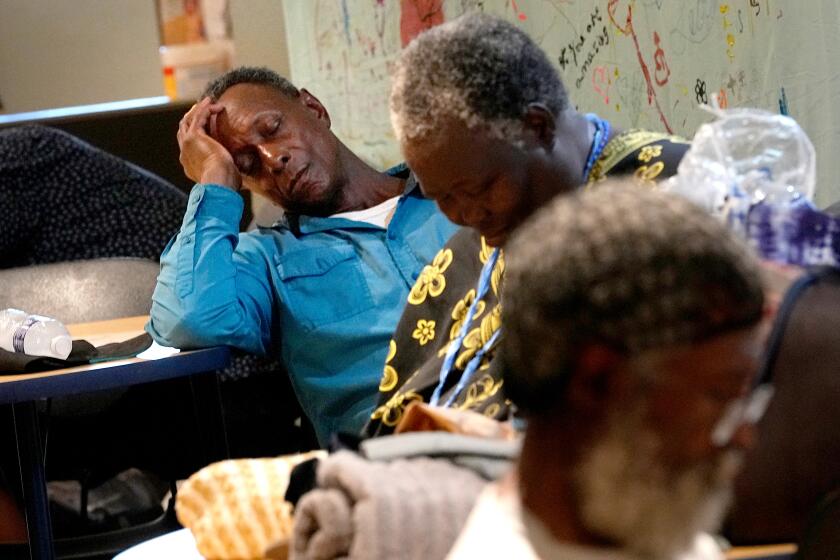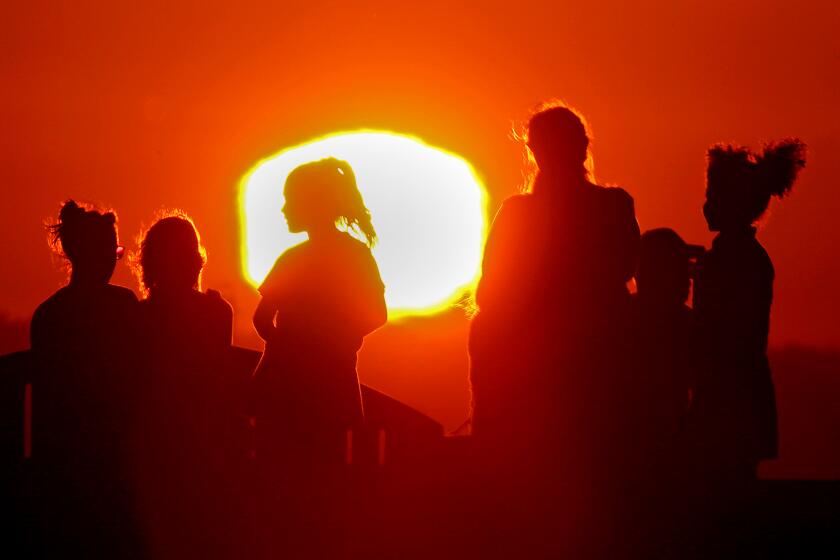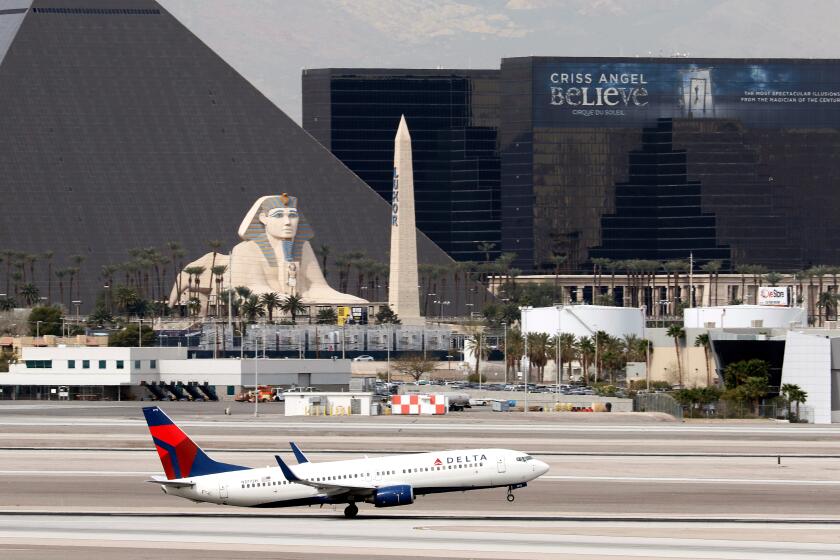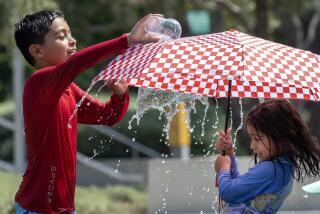Dangerous heat is coming to Los Angeles this weekend, raising warnings in the valleys
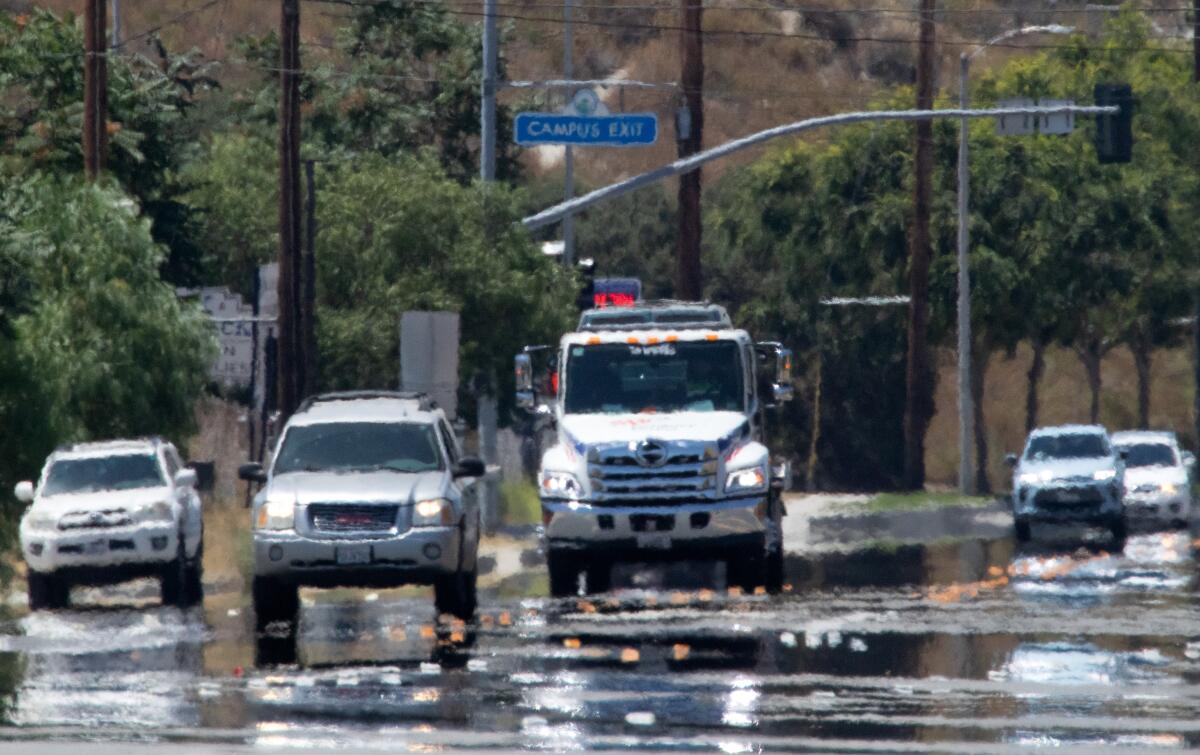
- Share via
Temperatures are expected to hit dangerous levels across parts of Los Angeles County this weekend, prompting officials to warn residents to protect themselves.
The latest bout of extreme temperatures, coming amid an unrelenting heat wave that has broiled much of the Southwest for three weeks, is forecast to bring highs of 100-110 degrees in the valleys, deserts and mountain areas. Los Angeles’ Emergency Management Department warns that the western San Fernando Valley is expected to be hit hard, and the eastern San Fernando and San Gabriel valleys are also under advisory.
Excessive heat warnings are also in place for the Antelope Valley, northwestern Los Angeles County mountains, the San Gabriel Mountains, the Santa Clarita Valley and the west San Fernando Valley for Sunday, according to the L.A. County public health officer.
There are also heat advisories on Saturday for the Santa Susana Mountains, Calabasas, Agoura Hills, the West and East Santa Monica Mountains, the San Gabriel Valley and Palos Verdes Hills.
Steve Curry, an experienced and inveterate hiker from Sunland, is believed to be the second person to die in Death Valley’s searing heat this year.
“High temperatures are not just an inconvenience; they can be dangerous and even deadly,” said Dr. Muntu Davis, the Los Angeles County health officer. “But we can protect ourselves, our families, and our neighbors if we take steps to remain cool and hydrated.”
The National Weather Service is forecasting temperatures to peak at 109 degrees in Woodland Hills on Saturday before cooling to 106 degrees on Sunday.
With a high of 110 degrees on Saturday, Lancaster is expected to just top Woodland Hills and Palmdale, also at 109 degrees.
Saugus is predicted to top off at 105 degrees on Saturday, while Burbank will hit 101 that day and Pasadena’s high is expected at 96 degrees.
Las Vegas and Phoenix have always endured broiling summers, but the scale and duration of this heat wave has brought new levels of misery.
In comparison, downtown Los Angeles is projected to hit 91 degrees on Saturday, while Los Angeles International Airport is expected to be foggy with a high of 79.
The National Weather Service said a strengthening high pressure ridge is one reason behind the high temperatures. The stronger the pressure, the less chance for cooling onshore winds to hit non-coastal areas.
“A very hot air mass is likely to bring major to extreme heat impacts away from the coast,” the agency wrote.
The city’s Emergency Management Department is advising residents to “to be proactive” in dealing with the dangerous heat.
California’s first heat wave of the year could last into next week. Here are some tips on how to stay safe and cool during hot weather.
Residents venturing outdoors should find shady areas to rest or buildings with air conditioners. In either event, drinking plenty of water is recommended.
The agency is asking residents without air conditioning to find public facilities that offer such services, including libraries along with recreation and senior centers.
Children and pets should not be left unattended in vehicles.
The city provides dozens of cooling and hydration centers that can be found by calling 311 or visiting emergency.lacity.gov/updates. County residents can dial 211 for cooling centers or check ready.lacounty.gov/heat/.
The Department of Transportation is investigating the incident, with U.S. Transportation Secretary Pete Buttigieg calling the issue “infuriating” and “shocking.”
Davis is counseling against trips during the hottest hours of the day. Those who need to venture outside should use sunscreen, light clothing, a hat or umbrella.
He’s also asking residents to be vigilant for neighbors suffering from heat stroke and to watch for vomiting, dizziness, confusion and red, hot, dry or damp skin. Heat stroke is a medical emergency and 911 should be dialed if someone is ailing, Davis advised.
“While it is very important that everyone take special care of themselves, it is equally important that we reach out and check on others,” Davis said, “in particular those who are especially vulnerable to the harmful effects of high temperatures, including children, the elderly those who are sick or have chronic conditions, pregnant women, those who live alone, and pets.”
More to Read
Sign up for Essential California
The most important California stories and recommendations in your inbox every morning.
You may occasionally receive promotional content from the Los Angeles Times.
